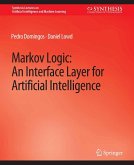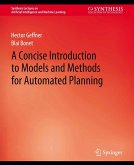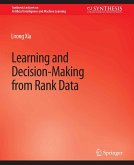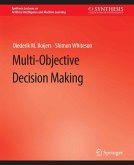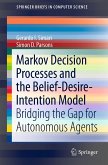Markov Decision Processes (MDPs) are widely popular in Artificial Intelligence for modeling sequential decision-making scenarios with probabilistic dynamics. They are the framework of choice when designing an intelligent agent that needs to act for long periods of time in an environment where its actions could have uncertain outcomes. MDPs are actively researched in two related subareas of AI, probabilistic planning and reinforcement learning. Probabilistic planning assumes known models for the agent's goals and domain dynamics, and focuses on determining how the agent should behave to achieve its objectives. On the other hand, reinforcement learning additionally learns these models based on the feedback the agent gets from the environment. This book provides a concise introduction to the use of MDPs for solving probabilistic planning problems, with an emphasis on the algorithmic perspective. It covers the whole spectrum of the field, from the basics to state-of-the-art optimal and approximation algorithms. We first describe the theoretical foundations of MDPs and the fundamental solution techniques for them. We then discuss modern optimal algorithms based on heuristic search and the use of structured representations. A major focus of the book is on the numerous approximation schemes for MDPs that have been developed in the AI literature. These include determinization-based approaches, sampling techniques, heuristic functions, dimensionality reduction, and hierarchical representations. Finally, we briefly introduce several extensions of the standard MDP classes that model and solve even more complex planning problems. Table of Contents: Introduction / MDPs / Fundamental Algorithms / Heuristic Search Algorithms / Symbolic Algorithms / Approximation Algorithms / Advanced Notes
Dieser Download kann aus rechtlichen Gründen nur mit Rechnungsadresse in A, B, BG, CY, CZ, D, DK, EW, E, FIN, F, GR, HR, H, IRL, I, LT, L, LR, M, NL, PL, P, R, S, SLO, SK ausgeliefert werden.



